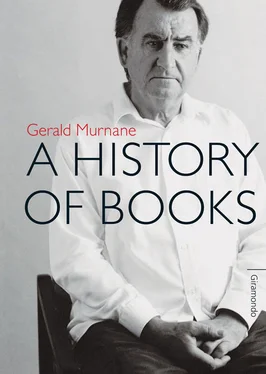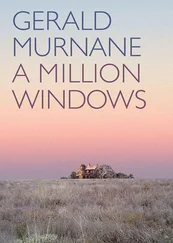We’d sooner suck ale through a blanket
Than thimbles of wine from a glass.
The man remembered also the following lines from the last stanza.
And we’ll sit it in spite of the weather
Till we tumble dead drunk on the plain.
… Desperate eves,
when the wind-bitten hills turned violet
along their rims, and the earth huddled her heat
within her niggard bosom, and the dead stones
lay battle-strewn before the iron wind
…
yet in that wind a clamour of trumpets rang,
old trumpets, resolute, stark, undauntable,
singing to battle against the eternal foe,
the wronger of this world, and all his powers
in some last fight, foredoom’d disastrous,
upon the final ridges of the world …
A young man, hardly more than a boy, was whispering the quoted lines while he walked along a deserted street in a certain outer suburb of Melbourne. The young man had first read the quoted lines in an anthology of Australian poetry presented to him as a prize in his final year at secondary school and had learned the lines soon afterwards. The young man was walking from the house where he lived with his parents and his brother to his parish church. From time to time, he recalled that he had confessed to a priest on the previous day a number of so-called mortal sins, and whenever he recalled this he felt a certain satisfaction.
The sky was dark except for a pale zone in the east, where the shape of a long, low mountain was visible. The young man had never visited the mountain or wanted to visit it. During daylight, when the mountain was clearly visible from many suburbs east and south-east of Melbourne, the young man seldom looked at the mountain. While he recited the quoted lines, however, he stared at one after another place where the uppermost parts of the mountain formed a dark line against the pale sky.
While the young man went on staring and reciting, he believed that he was just then about to learn something of value. A few moments before, he had been merely staring at one after another place where the dark mountain came to an end and the pale sky began. Then he had felt a certain alertness followed by an urge to recite the lines of poetry quoted above. This, so the young man supposed, was a series of events such as had led the poet to compose the lines that he, the young man, was now reciting. The poet had seen, on a certain evening or a certain morning before the young man had been born, a certain mountain with a zone of pale sky behind it, had then felt a certain alertness, and had then begun to compose a certain poem, parts of which the young man would recite nearly thirty years after the poet had died. The young man assumed that the sight of the mountain mentioned against the pale sky mentioned included such a detail, or such a detail of a detail, as would prompt a certain sort of person to compose part of a poem. The young man went on staring while he walked and while he recited, as though he might soon learn from the sight of the dark mountain against the pale sky to the east of the suburbs of Melbourne what was the detail, or the detail of a detail, that had earlier caused him to become alert and to recite and might yet cause him to compose poetry.
The young man had heard about the poet whose words he was reciting only that he had spent most of his life in Sydney, that he had been educated by the Society of Jesus, that he had become a notorious drunkard and had lived an immoral life, but that he had been received back into the Catholic Church before his death. The young man had heard these things from a religious brother who had been one of his teachers at secondary school. (The young man had been pleased to hear that the poet had been reconciled at last to his church. Otherwise, he, the young man, might have felt anxious on behalf of the poet’s immortal soul. The young man’s teachers and also his father and his father’s brothers sometimes told him that this or that person had died screaming for a priest, which seemed to the young man the worst of all possible deaths, even though his beliefs and opinions would soon be so changed that he would often tell his friends, only two years after he had looked at the mountain mentioned above and had recited the lines quoted above, that he would like to die screaming at a priest.)
During the months before he had recited, on a certain morning, the lines quoted earlier, the young man had tried to write one or another poem but had not succeeded. A few hours after he had returned to his and his parents’ house on the morning mentioned, the young man tried again to write a poem. First, he called to mind a certain dark image-mountain and a certain pale image-sky. He then looked at the image-place where the one image met the other image, but he failed to notice there any image-detail likely to cause him to become alert. It seemed to the young man that the image-mountain and the image-sky had long ago become image-details of an image-landscape in the mind of the poet who had composed the lines quoted earlier.
More than fifty years after the young man had walked along the deserted street as mentioned above, and when the man who had been the young man was setting out to write a certain piece of fiction, it seemed to the man as though the young man need not have lacked for any image-detail of any image-sight but as though he ought to have trusted that a dark mountain, a pale sky, the violet rims of wind-bitten hills, and even a drunkard-poet and his late repentance were already image-subject-matter for a piece of image-fiction that would not fail to be written.
When the man mentioned in the previous paragraph set out to write about the image mentioned there, he had read, twenty and more years earlier, a biography of the poet who had written the lines quoted earlier, although the man recalled from that experience only his having read that a certain woman, herself married, had offered herself to the poet when he was fifty-two years of age, himself married, and her senior by more than twenty years; that the woman and the poet had lived together for a time; but that the woman had quarrelled with the poet late on a certain evening seventeen years before the man mentioned had been born, and had then set out walking while drunk along a certain road in Sydney in the early morning and had been run down and killed by a tram.
In the mind of a certain young man, an image appeared of a topographical map with a seacoast in the foreground, green and mostly level grassy countryside in the middle ground, and in the background the nearest trees of several woodlands or forests. An image-seaport appeared at the centre of the image-seacoast, and a few image-townships or image-villages appeared at intervals in the grassy countryside. The image-map was all that the young man had seen, or would ever see, of the districts in an unnamed country where were set, as it were, most of the works of fiction and the poems of a famous author who had been born in England ninety-nine years before the young man had been born. The young man would claim during the rest of his life that his having read during his twenty-first year the works of fiction mentioned had enabled him to leave off attending the church that his parents and his teachers had required him to attend and there trying to see in his mind images of the countryside of heaven and of the personages whose native landscape it was. The young man would forget during the rest of his life most of what he had seen in his mind and most of what he had felt while he had first read the works mentioned and would seldom look again into the works but would claim during the rest of his life to be content merely to know that a certain intricate image-landscape still lay out of sight in his mind and that certain image-personages still enacted there not only the image-deeds that had once engaged him but other unreported deeds of their fictional lives.
Читать дальше












